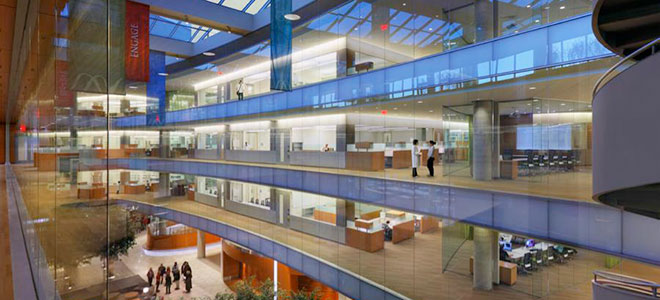 The Wisconsin Institute for Discovery (WID), a transdisciplinary research institute opening in 2010 at the University of Wisconsin–Madison, comprises a community of thinkers studying the information supporting life, ranging from cells to societies.
The Wisconsin Institute for Discovery (WID), a transdisciplinary research institute opening in 2010 at the University of Wisconsin–Madison, comprises a community of thinkers studying the information supporting life, ranging from cells to societies.
Exploring information at the interfaces of research, educational innovation, and entrepreneurship, the Institute promotes theoretical and experimental laboratory research, numerous collaborative programs, active engagement with the arts and humanities, and public events designed for the benefit of the state and society at large.
Donate to the Wisconsin Institute for Discovery
Your support will help continue the tradition of excellence in teaching, research, and public service.
Make a GiftSupporting WID enables the Institute to continue recruiting researchers at the forefront of their fields, promote productive collaborations across campus, and engage with the humanities and entrepreneurship. Your support can expand the Institute’s role in forging creative, inclusive and transdisciplinary educational models that enrich and improve the lives of our students and the public in Wisconsin and beyond.
Your gift furthers WID’s investment in:
- Highly original, collaborative science, ranging from education research to regenerative biomedical science, the social dimensions of computation and data visualization in the arts
- Undergraduate and graduate fellowships, which provide rigorous systems of thinking to students working on interdisciplinary problems; WID’s commitment to students spans beyond what is typically taught in classrooms, Massive Online Open Courses (MOOCs) and residency programs
- In-residence scholars, artists, and professionals who bring radical new ideas and a breadth of perspective to the WID community
- Events and lectures geared at bridging the gaps among disciplines, industries and the public
- Skill-oriented workshops that promote a greater public understanding of science and new tools for 21st-century professions
- Partnership programs across campus, focusing on new approaches to transdisciplinarity, collaboration and life-long education
